
Some of the most common daily habits seem harmless but could actually be putting your health at risk. From seemingly innocent routines to overlooked behaviors, science is revealing the unexpected ways they may be affecting your body and mind. These hidden dangers often go unnoticed until they lead to serious consequences. What habits might be quietly harming your well-being?
Skipping Breakfast Can Increase Heart Disease Risk

Skipping the first meal of the day doesn’t just leave you feeling sluggish—it may increase your risk of heart disease. Studies suggest that people who regularly skip breakfast are more likely to develop high blood pressure, cholesterol issues, and insulin resistance. This disruption in metabolism can contribute to long-term cardiovascular problems. Eating a nutritious breakfast may help keep your heart healthy and your energy levels stable.
Sitting for Too Long Raises Your Risk of Early Death

Spending hours sitting at your desk or lounging on the couch may be quietly damaging your health. Research links prolonged sitting with higher risks of obesity, heart disease, and even early death. Even regular exercise may not be enough to counteract the harmful effects of a sedentary lifestyle. Standing up, stretching, and moving throughout the day can help mitigate the damage.
Using Your Phone Before Bed Disrupts Sleep and Brain Function

Scrolling through your phone before bed exposes you to blue light, which interferes with melatonin production and disrupts your sleep cycle. Poor sleep has been linked to cognitive decline, increased stress, and a higher risk of chronic conditions like diabetes and heart disease. Even short-term sleep disturbances can impact memory and focus. Reducing screen time before bed can improve sleep quality and overall brain function.
Drinking Diet Soda Increases the Risk of Stroke and Dementia
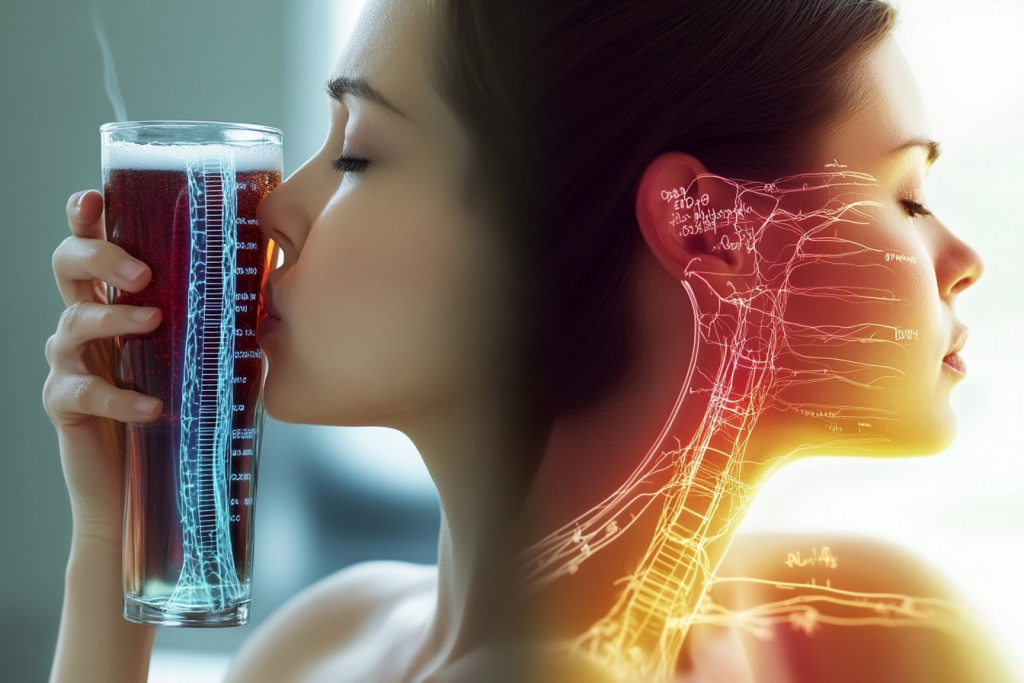
Many people turn to diet soda as a low-calorie alternative, but research suggests artificial sweeteners may have serious health consequences. Studies have linked excessive diet soda consumption to an increased risk of stroke, dementia, and metabolic disorders. The chemicals in artificial sweeteners can alter gut bacteria, potentially leading to insulin resistance. Cutting back on artificially sweetened drinks may help protect long-term brain and metabolic health.
Brushing Your Teeth Too Hard Can Damage Gums

Brushing your teeth aggressively might seem like a good way to keep them clean, but it can actually wear down enamel and cause gum recession. Over time, this can lead to tooth sensitivity and a higher risk of cavities. Hard brushing can also irritate the gums, making them more prone to infection. Using a soft-bristled toothbrush and gentle strokes helps maintain oral health without damaging your teeth.
Wearing Headphones Too Often Can Cause Hearing Loss

Listening to music or podcasts at high volumes for long periods can gradually damage the tiny hair cells in your inner ear, leading to permanent hearing loss. Experts recommend following the 60/60 rule: keeping volume at 60% and limiting listening time to 60 minutes per session. Continuous exposure to loud noise can also cause tinnitus, a persistent ringing in the ears. Lowering the volume and taking breaks can help protect your hearing.
Using Hand Sanitizer Too Often Weakens Immunity
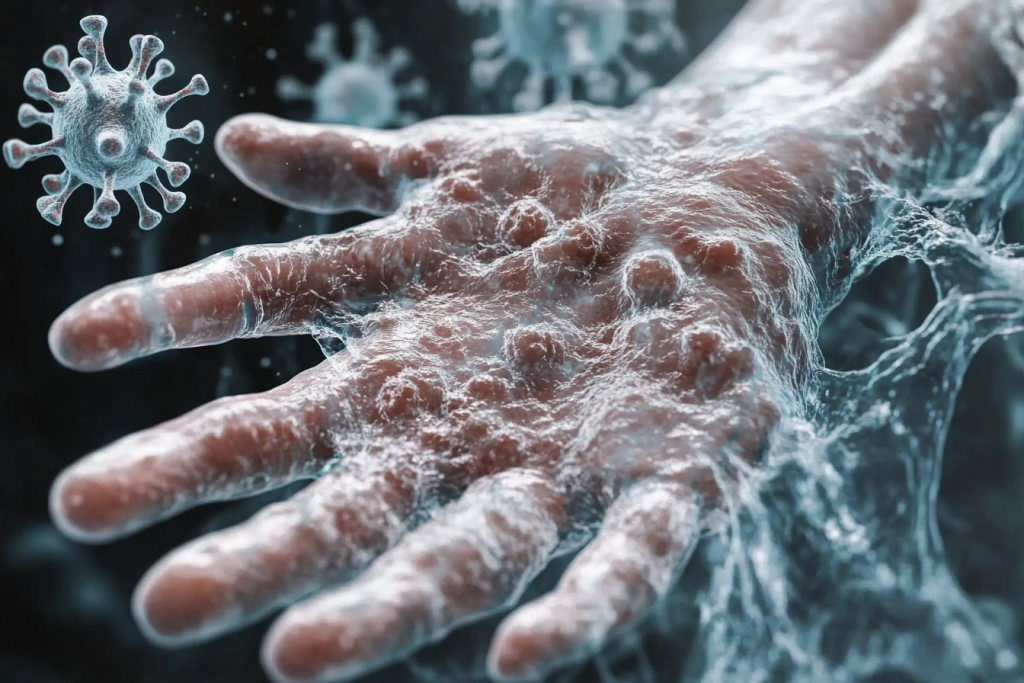
Hand sanitizer is great for killing germs, but overusing it can disrupt the natural balance of bacteria on your skin. Some experts believe that excessive use of antibacterial products may contribute to weaker immune responses and antibiotic resistance. Frequent use can also dry out the skin, causing irritation and cracks that make infections more likely. Washing hands with soap and water remains the best way to maintain hygiene while preserving your immune system.
Reheating Certain Foods Can Release Harmful Compounds

Reheating certain foods, such as rice, potatoes, and chicken, can create harmful bacteria and chemical changes that increase the risk of food poisoning. Improper storage and reheating can lead to toxin buildup that may cause digestive issues and even long-term health problems. Microwaving plastic containers can also release chemicals into food. Storing and reheating food correctly can prevent unwanted health risks.
Holding in Sneezes Can Damage Blood Vessels
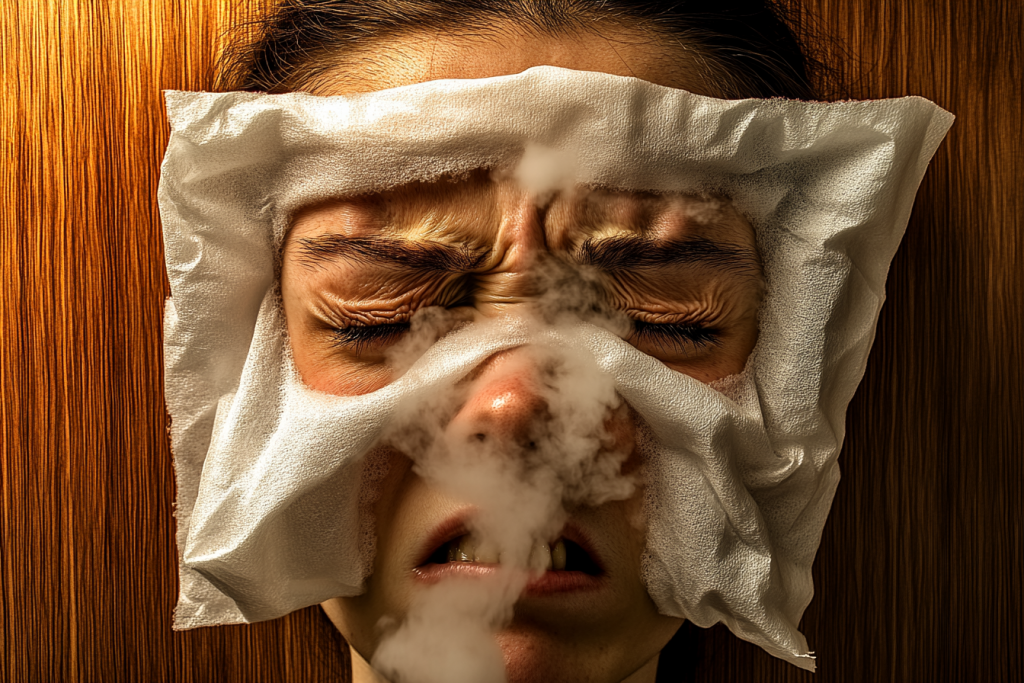
Stopping a sneeze by pinching your nose or closing your mouth can build pressure in your head, potentially leading to burst blood vessels in the eyes or sinuses. In extreme cases, this pressure can even cause ear damage or a ruptured eardrum. Sneezing is the body’s way of clearing irritants from the nasal passages, so suppressing it can also make infections worse. Letting a sneeze happen naturally is the safest way to protect your respiratory system.
Not Changing Your Bedsheets Regularly Increases Allergy Risk

Dust mites, dead skin cells, and bacteria accumulate in bedding over time, potentially triggering allergies, asthma, and skin irritation. Failing to wash sheets regularly can also lead to acne breakouts due to bacteria buildup. Experts recommend washing sheets at least once a week to maintain a clean and healthy sleep environment. Fresh bedding can improve both skin and respiratory health.
Drinking From Plastic Bottles Can Disrupt Hormones

Many plastic bottles contain bisphenol A (BPA) and other chemicals that can leach into liquids, especially when exposed to heat. These chemicals have been linked to hormonal imbalances, fertility issues, and an increased risk of certain cancers. Reusable glass or stainless-steel bottles provide a safer alternative. Reducing plastic exposure can help lower the risk of hormone-related health concerns.
Overusing Painkillers Can Lead to Rebound Headaches

Frequent use of over-the-counter pain medications like ibuprofen or acetaminophen can actually worsen headaches over time. Known as medication overuse headaches, this condition occurs when the body becomes dependent on painkillers, leading to chronic pain cycles. Long-term use of these medications can also harm the liver and kidneys. Using pain relievers sparingly and addressing underlying causes of pain can help break the cycle.
Chewing Ice Can Damage Teeth and Gums
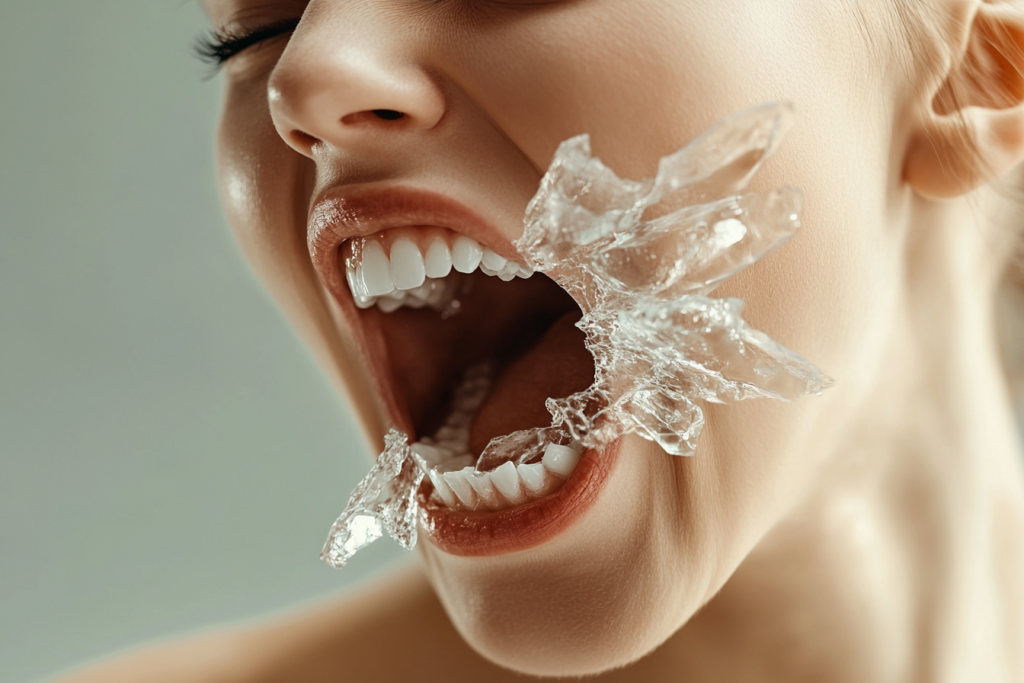
Chewing on ice may seem like a harmless habit, but the extreme cold and hardness can weaken tooth enamel and cause microscopic fractures. Over time, this can lead to sensitivity, cracks, and even broken teeth. The habit is often linked to iron deficiency anemia, so frequent ice chewing may be a sign of an underlying health issue. Opting for softer, hydrating snacks can protect dental health.
Holding in Stress Can Weaken the Immune System

Bottling up emotions and avoiding stress management can trigger a cascade of negative health effects. Chronic stress weakens the immune system, making the body more susceptible to infections, inflammation, and even autoimmune diseases. It also increases the risk of heart disease and high blood pressure. Finding healthy ways to release stress—such as exercise, mindfulness, or talking to a friend—can help maintain both mental and physical well-being.
Mindless Snacking Can Shorten Lifespan
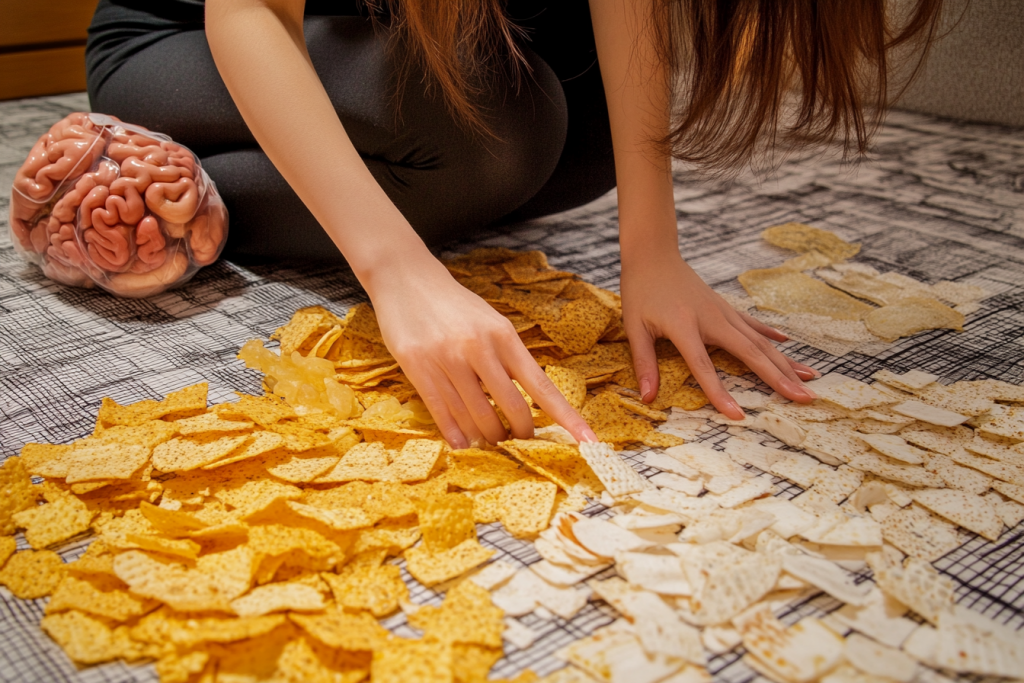
Constant snacking, especially on processed foods, can lead to weight gain, metabolic issues, and increased risks of diabetes and heart disease. Mindless eating often results in consuming more calories than needed, leading to imbalances in blood sugar and hormone levels. Eating nutrient-dense meals and being mindful of hunger cues can help maintain long-term health. Choosing whole foods over processed snacks supports a balanced and sustainable diet.
Are Your Habits Helping or Hurting You?

Many daily routines seem harmless but could be quietly taking a toll on your health. The small choices you make each day can have lasting effects on your body, from increasing disease risk to reducing overall well-being. Awareness is the first step in making healthier decisions. What everyday habits might be affecting you more than you realize?





